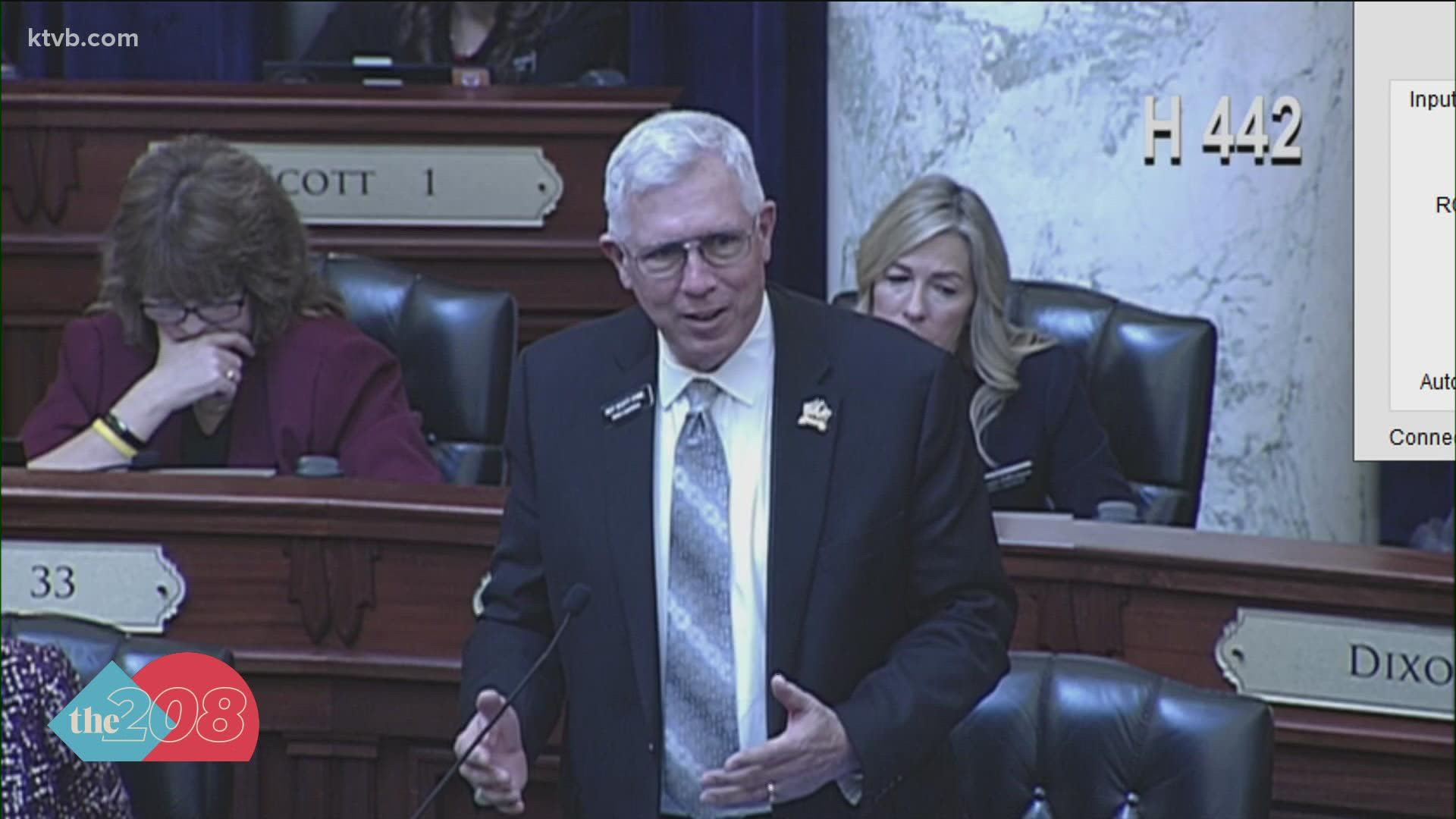BOISE, Idaho — After vigorous debate Monday, the Idaho House voted 54-14 in favor of HB 442, Rep. Joe Palmer’s bill to erase the city of Boise’s current cap on rental application fees and forbid any local regulation of any kind of rental fees statewide.
Four Republicans joined all but one Democrat who was present to oppose the bill; it now moves to the Senate for committee consideration.
Palmer, R-Meridian, told the House, "This is not about Boise, I didn't bring up Boise."
But Boise is the only local government in the state that has enacted such regulations. Rep. John Gannon, D-Boise, said that's because Boise has seen abuses of rental application fees amid a housing crunch, and its locally elected officials listened to their constituents' concerns.
With increasing numbers of out-of-state investors operating rentals in Boise, he said, "Application fees for some actually became kind of a scam, as some property managers took many more applications, knowing only one would be used in the end, and that they didn't need to have 20 or 30. ... It became a real pot (of money) for some unscrupulous and aggressive folks."
Boise's ordinance caps rental application fees at $30, along with other rules. It was enacted after local residents seeking scarce rentals complained about spending hundreds on multiple application fees and still never getting places to rent.
Gannon argued that government created the current housing crisis by depressing interest rates and attracting investors to come to Idaho, leading to a close to 100% occupancy rate in Boise apartments, and a 30.2% increase in apartment rents from March 2020 to this month, according to Apartments.com. That, he said, has caused "an imbalance in the relations between landlords and tenants in this community, and a regulation that is reasonable should be part of government's agenda."
Rep. Chad Christensen, R-Iona, told the House, "When government mandates prices, that is communism. I support this bill."
Idaho law already forbids any local rent control; that's been on the books for three decades. Palmer said he believes that should have prohibited any local regulation of fees as well, and that such matters should be strictly up to businesses to decide. "Today there are jurisdictions that are finding loopholes in that law and going around it," he said.
Rep. Colin Nash, D-Boise, said when the bill cleared a House committee, he was contacted by a constituent who's a landlord in his district, who told of receiving 60 applications in a single day for one opening in a four-plex. That could have meant a big windfall if he charged application fees to each one. "He was asking me to vote against this legislation, because he finds practices like that immoral," Nash told the House, "and he doesn't want landlords who are acting in good faith to be caught up in that."
Nash declared, "Instead of adding an arrow to the quiver of local government to help combat this crisis, we're disabling local government from responding and intervening when their citizens are being exploited."
Rep. Ryan Kerby, R-New Plymouth, said it "bothers me" that some landlords are keeping application fees from dozens of applicants but not renting to them. "I don't see why we'd protect those folks," he said.
Rep. Scott Syme, R-Caldwell, said, "I'm conflicted over this, being in the real estate business. I don't like any type of government control of rents or fees that are charged." But he said he had the same concern as Kerby about the practice in question.
"At what point do we not trust our system of local control?" Syme asked the House. "I've heard of the democratic process, if you don't like decisions that local leaders make, you vote them out. ... I've heard that a number of times in this body."
"But every time I turn around, I seem to hear another instance of we at the state know better than those people that are down in those local communities. So that's what I really struggle with," Syme said.
Boise enacted its rental fee ordinance in 2019. This year, its author, City Councilor Lisa Sanchez, won re-election in a landslide, defeating three challengers with nearly 60% of the vote.
Rep. Steve Berch, D-Boise, said, "We should let government closest to the people work, and not step in with a sledgehammer to prevent them from doing so."
Rep. Lauren Necochea, D-Boise, said, "The problem is right now we're in a crisis. ... What we're seeing right now is that renters are so desperate that they can't get a fair shake in this market."
More than a dozen House members, from both parties, rose to disclose potential conflicts of interest with the bill because they own rental property. House Speaker Scott Bedke encouraged the disclosures, saying, "No one ever went to jail for declaring too much. Just putting it out there."
Rep. James Ruchti, D-Pocatello, was the only Democrat in the House to vote in favor of the bill. Christensen was the only House member other than Palmer, the bill's sponsor, to debate in favor of it; all other debate was against the bill, as was most of the testimony in an earlier committee hearing.
To become law, the bill still would need to clear a Senate committee, pass the full Senate, and be signed into law by the governor.
Watch more Idaho politics:
See all of our latest political coverage in our YouTube playlist:

